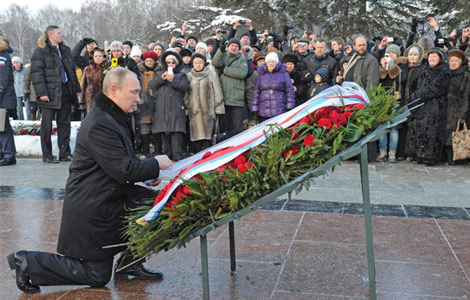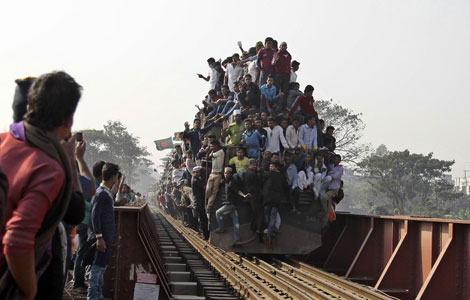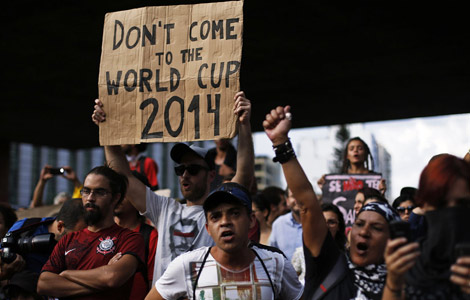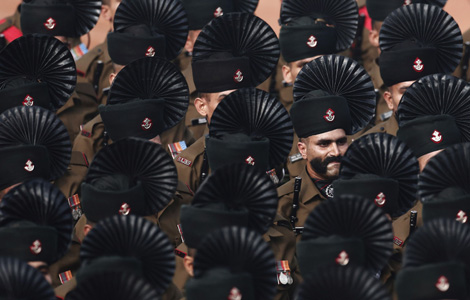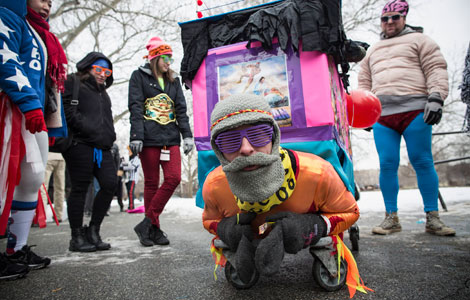

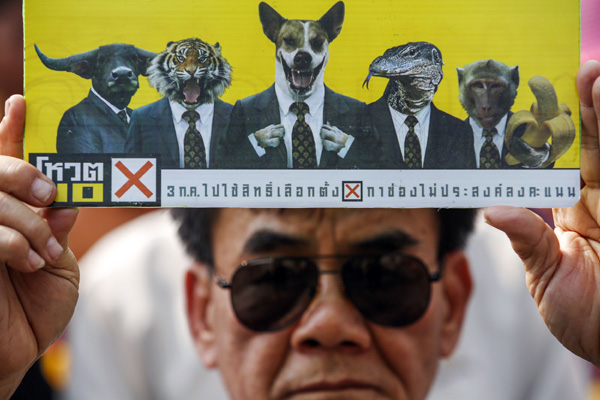 |
|
An anti-government protester holds a placard during a rally in Bangkok January 27, 2014. [Photo/Agencies] |
NOT BACKING DOWN
In their latest comments, neither the government nor the protesters showed any sign of backing down.
"We have to press ahead with the Feb 2 election ... A postponement would be futile and would only give independent organisations more time to target the government," Interior Minister Jarupong Ruangsuwan, also head of the ruling Puea Thai Party, said.
Last week the government declared a state of emergency that would give it sweeping powers to curb the protests using the police, but it has so far shown no appetite for a crackdown and the marches through the capital have continued.
On Sunday, protesters closed off most of the polling booths set up in Bangkok for advance voting, though the Election Commission said voting went ahead in 292 of the 375 electoral areas nationwide.
Yingluck called the Feb 2 election in the hope of confirming her hold on power, and would almost certainly win by a large margin.
Protest leader Suthep Thaugsuban, a former deputy prime minister, has rejected the election outright. In a speech to demonstrators on Sunday night he appealed to the military to "protect innocent people who fight with their hands".
On Monday, he said his "Bangkok Shutdown" movement would not accede to government requests to free up access to ministries and state agencies that they have blockaded.
About 2.16 million people have registered for early polling in the country, out of 49 million eligible voters.
Election official Somchai said even a delay of one month might not be enough to resolve the political deadlock, but waiting too long would leave the caretaker government unable to administer the country properly.
He said the commission did not agree with protesters' plans for an unelected "people's council" to take over the government.
"This is not the democratic way of doing things ... I don't think Suthep's reforms, within the time frame he gives, are possible."
EIGHT YEARS OF CONFLICT
The protests are the latest chapter in a political conflict that has gripped Thailand for eight years. There is growing talk it could turn into civil war and draw in the military.
Paul Chambers, director of research at the Institute of South East Asia Affairs in northern Chiang Mai, said Thailand might have to settle on a decentralised form of administration, with different regions given broader sway to pursue their own policies.
Sunday's killing, Chambers said, reflects "the growing tit-for-tat" between the two sides.
"It is a dangerous trend, a harbinger symptomatic of the potential inception of civil war -- or a future clash between police and army that could lead to a coup," he said.
"There are growing perceptions among people on each side that to avert civil war it might be necessary to regionally decentralise Thailand such that there is one country, two democracies ... united only under the Kingdom of Thailand."
Yingluck's government led the country through a relatively peaceful period between 2011 and 2013 until a misstep by her Puea Thai Party in November, when it tried to force through an amnesty bill.
That would have let her brother return as a free man, despite the 2008 jail sentence that he says was politically motivated.
